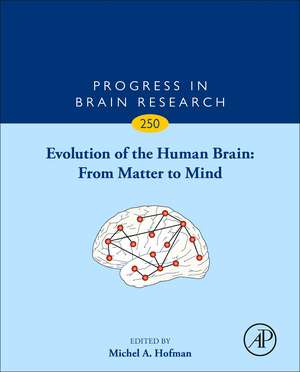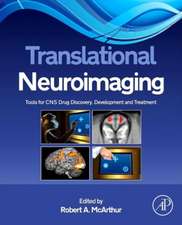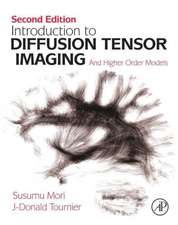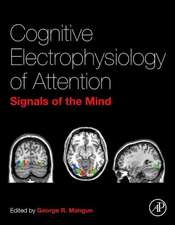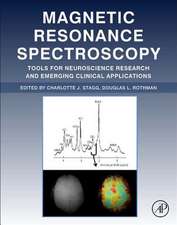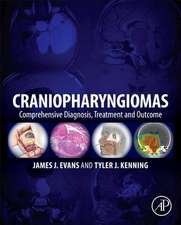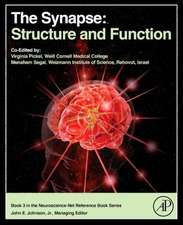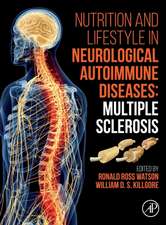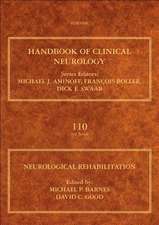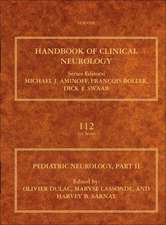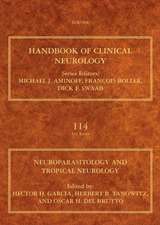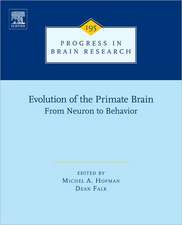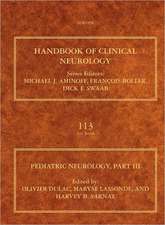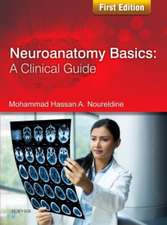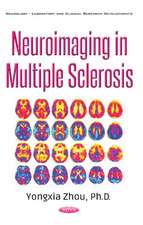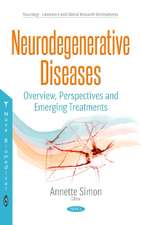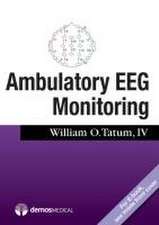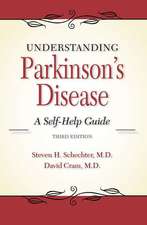Evolution of the Human Brain: From Matter to Mind: Progress in Brain Research, cartea 250
Michel A. Hofmanen Limba Engleză Hardback – 6 noi 2019
- Presents insights on molecular and cellular mechanisms of human brain evolution
- Provides a better understanding of the origin and evolution of the human mind
- Includes information of the neural organization and functional connectivity of the cerebral cortex
Din seria Progress in Brain Research
- 9%
 Preț: 1159.33 lei
Preț: 1159.33 lei - 39%
 Preț: 1230.29 lei
Preț: 1230.29 lei - 9%
 Preț: 1232.44 lei
Preț: 1232.44 lei - 9%
 Preț: 1232.44 lei
Preț: 1232.44 lei - 5%
 Preț: 1281.30 lei
Preț: 1281.30 lei - 9%
 Preț: 1226.58 lei
Preț: 1226.58 lei - 5%
 Preț: 1281.42 lei
Preț: 1281.42 lei - 9%
 Preț: 1229.83 lei
Preț: 1229.83 lei - 9%
 Preț: 1232.44 lei
Preț: 1232.44 lei - 9%
 Preț: 1226.78 lei
Preț: 1226.78 lei - 32%
 Preț: 1228.99 lei
Preț: 1228.99 lei - 32%
 Preț: 1233.29 lei
Preț: 1233.29 lei - 29%
 Preț: 1283.57 lei
Preț: 1283.57 lei - 29%
 Preț: 1215.87 lei
Preț: 1215.87 lei - 32%
 Preț: 1154.95 lei
Preț: 1154.95 lei - 9%
 Preț: 1154.27 lei
Preț: 1154.27 lei - 9%
 Preț: 1151.54 lei
Preț: 1151.54 lei - 9%
 Preț: 1164.52 lei
Preț: 1164.52 lei - 9%
 Preț: 1160.07 lei
Preț: 1160.07 lei - 5%
 Preț: 2050.37 lei
Preț: 2050.37 lei - 5%
 Preț: 1207.95 lei
Preț: 1207.95 lei - 32%
 Preț: 1161.07 lei
Preț: 1161.07 lei - 32%
 Preț: 1157.18 lei
Preț: 1157.18 lei - 5%
 Preț: 2062.98 lei
Preț: 2062.98 lei - 9%
 Preț: 1155.98 lei
Preț: 1155.98 lei - 9%
 Preț: 1164.43 lei
Preț: 1164.43 lei - 9%
 Preț: 1164.43 lei
Preț: 1164.43 lei - 9%
 Preț: 1158.65 lei
Preț: 1158.65 lei - 9%
 Preț: 1164.50 lei
Preț: 1164.50 lei - 9%
 Preț: 1149.16 lei
Preț: 1149.16 lei - 9%
 Preț: 1159.43 lei
Preț: 1159.43 lei - 5%
 Preț: 1214.52 lei
Preț: 1214.52 lei - 9%
 Preț: 1153.55 lei
Preț: 1153.55 lei - 9%
 Preț: 1156.91 lei
Preț: 1156.91 lei - 9%
 Preț: 1156.05 lei
Preț: 1156.05 lei - 9%
 Preț: 1159.50 lei
Preț: 1159.50 lei - 9%
 Preț: 1156.91 lei
Preț: 1156.91 lei - 5%
 Preț: 1205.96 lei
Preț: 1205.96 lei - 9%
 Preț: 1161.24 lei
Preț: 1161.24 lei - 41%
 Preț: 1084.00 lei
Preț: 1084.00 lei - 9%
 Preț: 1221.36 lei
Preț: 1221.36 lei - 29%
 Preț: 1212.66 lei
Preț: 1212.66 lei
Preț: 1306.24 lei
Preț vechi: 1922.16 lei
-32% Nou
Puncte Express: 1959
Preț estimativ în valută:
249.97€ • 259.50$ • 208.44£
249.97€ • 259.50$ • 208.44£
Carte tipărită la comandă
Livrare economică 15-29 martie
Preluare comenzi: 021 569.72.76
Specificații
ISBN-13: 9780444643179
ISBN-10: 0444643176
Pagini: 390
Dimensiuni: 191 x 235 mm
Greutate: 0.89 kg
Editura: ELSEVIER SCIENCE
Seria Progress in Brain Research
ISBN-10: 0444643176
Pagini: 390
Dimensiuni: 191 x 235 mm
Greutate: 0.89 kg
Editura: ELSEVIER SCIENCE
Seria Progress in Brain Research
Public țintă
Addressed to any clinicians, neuroscientist, psichologist or students.Cuprins
Section I - Molecular and Cellular Mechanisms of Human Brain Evolution
1. Genetics of human brain evolution
Eric J. Vallender
2. Genetic diversity underlying behavioral plasticity in human adaptation
Amy L. Bauernfeind and Courtney C. Babbitt
Section II - Cerebral Cortex: Neural Organization and Functional Connectivity
3. The origin and evolution of neocortex: From early mammals to modern humans
Jon H. Kaas
4. Allometry, evolution and development of neocortex size in mammals
Jeroen B. Smaers, Carrie S. Mongle, Kamran Safi and Diana K.N. Dechmann
5. Neurodevelopmental disorders of the prefrontal cortex in an evolutionary context
Branka Hrvoj-Mihic and Katerina Semendeferi
6. The human connectome from an evolutionary perspective
Dirk Jan Ardesch, Lianne H. Scholtens and Martijn P. van den Heuvel
7. Evolution of cerebral asymmetry
Michael C. Corballis
8. Life history changes accompany increased numbers of cortical neurons: A new framework for understanding human brain evolution
Suzana Herculano-Houzel
Section III - Origin and Evolution of the Human Mind
9. Evolution of the modern human brain
Amelie Beaudet, Andrew Du and Bernard A. Wood
10. On the nature and evolution of the human mind
Michel A. Hofman
11. Origin and evolution of human cognition
Gerhard Roth and Ursula Dicke
12. Origin and evolution of human consciousness
Franco Fabbro, Damiano Cantone, Susanna Feruglio and Cristiano Crescentini
13. Origin and evolution of human speech: Emergence from a trimodal auditory, visual and vocal network
Maeva Michon, Vladimir López and Francisco Aboitiz
1. Genetics of human brain evolution
Eric J. Vallender
2. Genetic diversity underlying behavioral plasticity in human adaptation
Amy L. Bauernfeind and Courtney C. Babbitt
Section II - Cerebral Cortex: Neural Organization and Functional Connectivity
3. The origin and evolution of neocortex: From early mammals to modern humans
Jon H. Kaas
4. Allometry, evolution and development of neocortex size in mammals
Jeroen B. Smaers, Carrie S. Mongle, Kamran Safi and Diana K.N. Dechmann
5. Neurodevelopmental disorders of the prefrontal cortex in an evolutionary context
Branka Hrvoj-Mihic and Katerina Semendeferi
6. The human connectome from an evolutionary perspective
Dirk Jan Ardesch, Lianne H. Scholtens and Martijn P. van den Heuvel
7. Evolution of cerebral asymmetry
Michael C. Corballis
8. Life history changes accompany increased numbers of cortical neurons: A new framework for understanding human brain evolution
Suzana Herculano-Houzel
Section III - Origin and Evolution of the Human Mind
9. Evolution of the modern human brain
Amelie Beaudet, Andrew Du and Bernard A. Wood
10. On the nature and evolution of the human mind
Michel A. Hofman
11. Origin and evolution of human cognition
Gerhard Roth and Ursula Dicke
12. Origin and evolution of human consciousness
Franco Fabbro, Damiano Cantone, Susanna Feruglio and Cristiano Crescentini
13. Origin and evolution of human speech: Emergence from a trimodal auditory, visual and vocal network
Maeva Michon, Vladimir López and Francisco Aboitiz
Recenzii
"Editor Michel A. Hofman provides a thoughtful examination of the evolution of the human brain. The book is divided topically into the following subjects: development and evolution of the human cortex, functional connectivity of the human cortex, the nature and evolution of the human mind, origin and evolution of human cognition, and consciousness. Each of these topics is covered in several chapters that review theories and application. Special attention is paid to Darwinian evolutionary theory in many of the chapters in order to better explain the modern human brain. There are instances in the book where there are acronyms that are introduced without warning the reader, which may be due some of the authors expecting the readers to have a certain level of familiarity with the research that is presented. For example, when discussing different structures in the brain, they would utilize the acronym for that brain structure first before introducing that area. Neuropsychology trainees will experience some familiarity with the information presented throughout the book, akin to what they have learned in their various neuroscience/neuropsychology classes. The chapters discussing the development of neurodevelopmental disorders, consciousness in children, metacognition, gaze following, problem solving, and human cognition are applicable to both neuropsychology trainees and practicing neuropsychologists." --Keshia M. Sanders, Ph.D.
